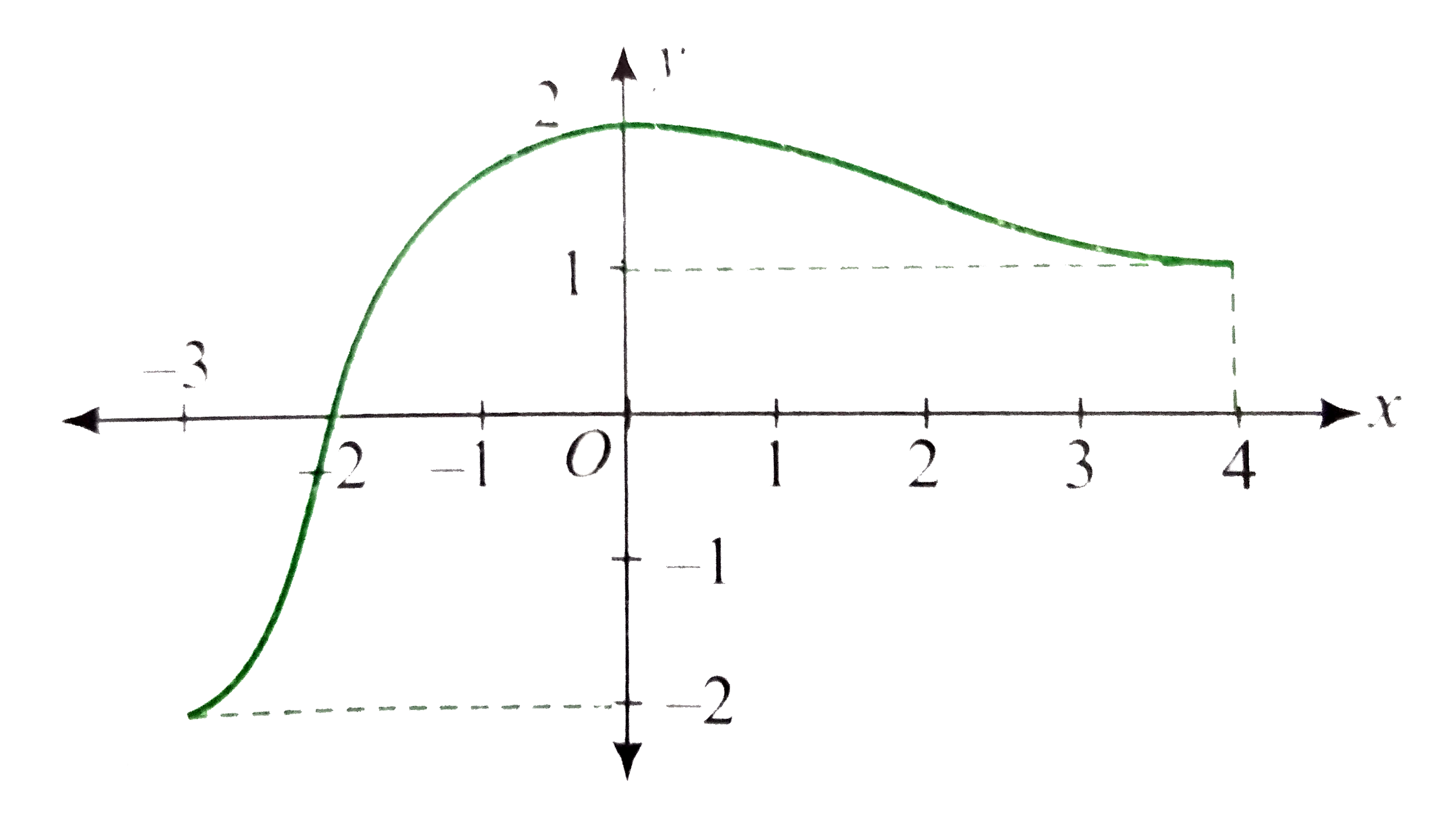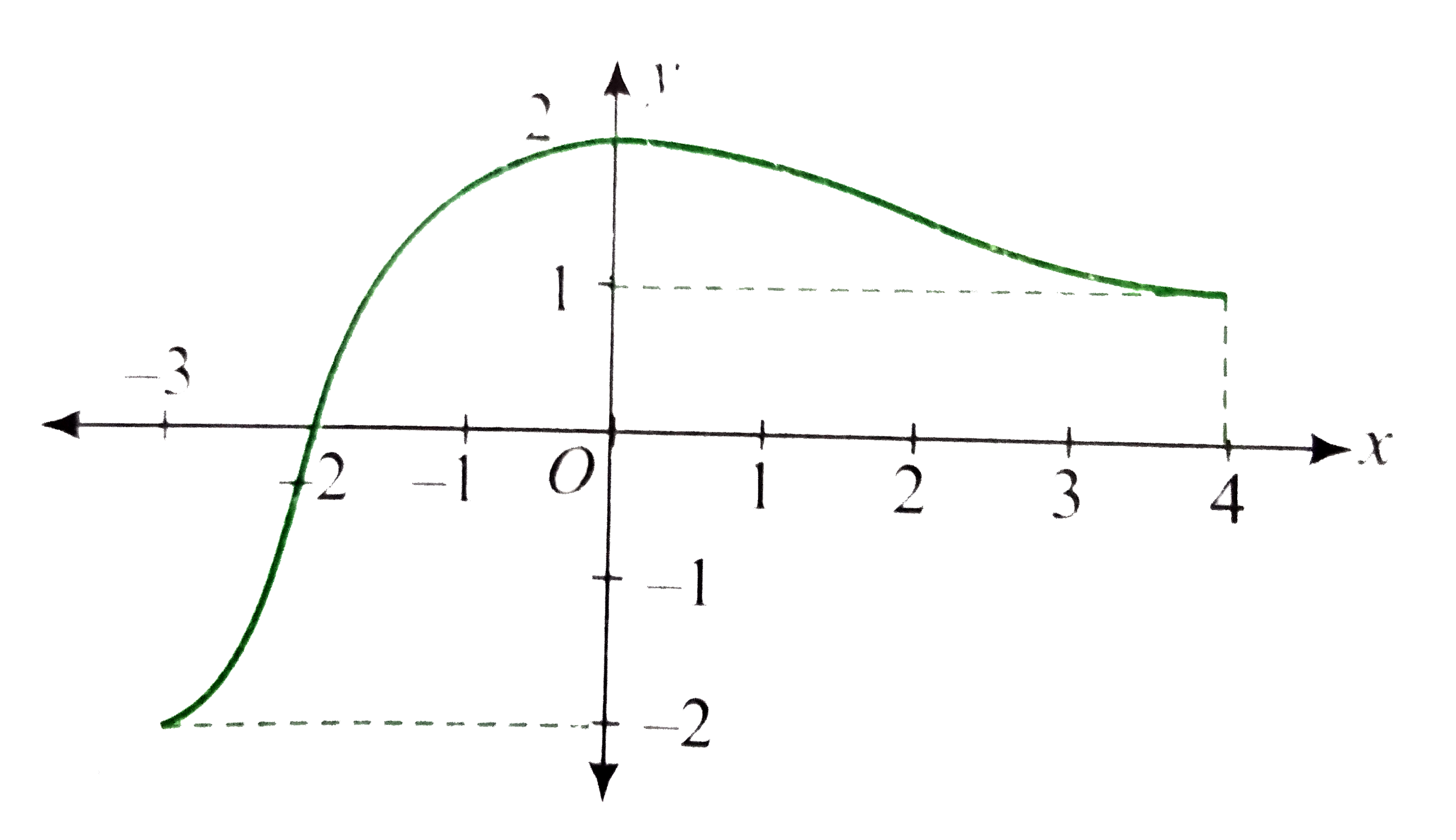Complete Solutions to Linked Comprehension Type of chapter RELATIONS AND FUNCTIONS of Class 12 book with complete answers and questions
| Class 12 | MATHS |
| Chapter | RELATIONS AND FUNCTIONS |
| CENGAGE NEW | Linked Comprehension Type |
| Number Of Questions | 32 |
| Academic Year | 2023-24 |
Consider the functions
`f(x)={(x+1",",x le 1),(2x+1",",1lt x le 2):} and g(x)={(x^(2)",", -1 le x lt2),(x+2",",2le x le 3):}`
The range of the function `f(g(x))` is
View SolutionConsider the functions
`f(x)={(x+1",",x le 1),(2x+1",",1lt x le 2):} and g(x)={(x^(2)",", -1 le x lt2),(x+2",",2le x le 3):}`
The range of the function `f(g(x))` is
View SolutionIf the function `f(x) ={x+1` if `x le 1` , `2x+1` if `1 lt x le 2` and `g(x) = {x^2` if `-1 le x le 2`, `x+2 if 2 le x le 3` then the number of roots of the equation `f(g(x))=2`
View SolutionConsider the function `f(x)` satisfying the identity `f(x) +f((x-1)/(x))=1+x AA x in R -{0,1}, and g(x)=2f(x)-x+1.`
The domain of `y=sqrt(g(x))` is
View SolutionConsider the function f(x) satisfyig the identity `f(x)+f((x-1)/x)=1+x, AA x in R-{0,1}` and `g(x)=2f(x)-x+1` Then range of y=g(x) is:
View SolutionConsider the function `f(x)` satisfying the identity `f(x) +f((x-1)/(x))=1+x AA x in R -{0,1}, and g(x)=2f(x)-x+1.`
The domain of `y=sqrt(g(x))` is
View SolutionIf `(f(x))^2*f((1-x)/(1+x))=64 x AA in D_f` then
View SolutionIf `(f(x))^(2)xxf((1-x)/(1+x))=64x AAx in D_(f),` then
The domain of `f(x)` is
View SolutionIf `(f(x))^(2)xxf((1-x)/(1+x))=64x AAx in D_(f),` then
The value of `f(9//7)` is
View Solution`f(x)={(x-1",",-1 le x le 0),(x^(2)",",0le x le 1):} and g(x)=sinx`
Consider the functions `h_(1)(x)=f(|g(x)|) and h_(2)(x)=|f(g(x))|.`
then
View Solution`f(x)={(x-1",",-1 le x le 0),(x^(2)",",0le x le 1):} and g(x)=sinx`
Consider the functions `h_(1)(x)=f(|g(x)|) and h_(2)(x)=|f(g(x))|.`
Which of the following is not true about `h_(2)(x)`?
View Solution`f(x)={(x-1",",-1 le x le 0),(x^(2)",",0le x le 1):} and g(x)=sinx`
Consider the functions `h_(1)(x)=f(|g(x)|) and h_(2)(x)=|f(g(x))|.`
Which of the following is not true about `h_(1)(x)`?
View SolutionIf `a_0 = x,a_(n+1)= f(a_n)`, where `n = 0, 1, 2, ...,` then answer thefollowing questions. If `f (x) = msqrt(a-x^m),x lt0,m leq 2,m in N`,then
View SolutionIf `a_(0)=x,a_(n+1)=f(a_(n)), " where " n=0,1,2, …,` then answer the following questions.
If `f(x)=(1)/(1-x),` then which of the following is not true?
View SolutionIf `a_(0)=x,a_(n+1)=f(a_(n)), " where " n=0,1,2, …,` then answer the following questions.
If `f:R to R ` is given by `f(x)=3+4x and a_(n)=A+Bx,` then which of the following is not true?
View SolutionLet `f(x)=f_1(x)-2f_2 (x)`, where ,where `f_1(x)={((min{x^2,|x|},|x|le 1),(max{x^2,|x|},|x| le 1))` and `f_2(x)={((min{x^2,|x|},|x| lt 1),({x^2,|x|},|x| le 1))` and let `g(x)={ ((min{f(t):-3letlex,-3 le x le 0}),(max{f(t):0 le t le x,0 le x le 3}))` for `-3 le x le -1` the range of `g(x)` is
View SolutionLet `f(x)=f_(1)(x)-2f_(2)(x),` where
where `f(x)={(min{x^(2)","|x|}",",|x| le 1),(max{x^(2)","|x|}",",|x| gt 1):}`
and `f_(2)(x)={(min{x^(2)","|x|}",",|x| gt 1),(max{x^(2)","|x|}",",|x| le 1):}`
and let `g(x)={(min{f(t):-3 le t le x", "-3 le x lt 0}),(max{f(t): 0le t le x", " 0 le x le 3}):}`
For `-3 le x le -1,` the range of g(x) is
View SolutionLet `f(x)=f_(1)(x)-2f_(2)(x),` where
where `f(x)={(min{x^(2)","|x|}",",|x| le 1),(max{x^(2)","|x|}",",|x| gt 1):}`
and `f_(2)(x)={(min{x^(2)","|x|}",",|x| gt 1),(max{x^(2)","|x|}",",|x| le 1):}`
and let `g(x)={(min{f(t):-3 le t le x", "-3 le x lt 0}),(max{f(t): 0le t le x", " 0 le x le 3}):}`
For `-3 le x le -1,` the range of g(x) is
View SolutionLet `f(x)={(2x+a",",x ge -1),(bx^(2)+3",",x lt -1):}`
and `g(x)={(x+4",",0 le x le 4),(-3x-2",",-2 lt x lt 0):}`
`g(f(x))` is not defined if
View SolutionLet `f(x)={(2x+a",",x ge -1),(bx^(2)+3",",x lt -1):}`
and `g(x)={(x+4",",0 le x le 4),(-3x-2",",-2 lt x lt 0):}`
If the domain of `g(f(x))" is " [-1, 4],` then
View SolutionLet `f(x)={(2x+a",",x ge -1),(bx^(2)+3",",x lt -1):}`
and `g(x)={(x+4",",0 le x le 4),(-3x-2",",-2 lt x lt 0):}`
If `a=2 and b=3,` then the range of `g(f(x))` is
View SolutionLet `f : R -> R` is a function satisfying `f(2-x) = f(2 + x) and f(20-x)=f(x),AA x in R`. On the basis of above information, answer the following questions If `f(0)=5`, then minimum possible number of values of x satisfying `f(x) = 5`, for `x in [10, 170]` is
View SolutionLet `f:R to R ` be a function satisfying `f(2-x)=f(2+x) and f(20-x)=f(x) AA x in R.` For this function `f`, answer the following.
The graph of `y= f(x)` is not symmetrial about
View SolutionLet `f:R to R ` be a function satisfying `f(2-x)=f(2+x) and f(20-x)=f(x) AA x in R.` For this function `f`, answer the following.
If `f(2) ne f(6),` then the
View SolutionConsider two functions
`f(x)={([x]",",-2le x le -1),(|x|+1",",-1 lt x le 2):} and g(x)={([x]",",-pi le x lt 0),(sinx",",0le x le pi):}`
where [.] denotes the greatest integer function.
The number of integral points in the range of `g(f(x))` is
View SolutionConsider two functions
`f(x)={([x]",",-2le x le -1),(|x|+1",",-1 lt x le 2):} and g(x)={([x]",",-pi le x lt 0),(sinx",",0le x le pi):}`
where [.] denotes the greatest integer function.
The exhaustive domain of `g(f(x))` is
View SolutionConsider two functions
`f(x)={([x]",",-2le x le -1),(|x|+1",",-1 lt x le 2):} and g(x)={([x]",",-pi le x lt 0),(sinx",",0le x le pi):}`
where [.] denotes the greatest integer function.
The number of integral points in the range of `g(f(x))` is
View SolutionConsider a function f whose domain is [-3, 4] and range is [-2, 2] with following graph.

Domain and range of `g(x)=f(|x|)` is [a, b] and [c, d] respectively, then `(b-a+c+d)` is
View SolutionConsider a function f whose domain is [-3, 4] and range is [-2, 2] with following graph.

If `h(x)=|f(x)-(3)/(2)|` has range [e, f] and n be number of real solutions of `h(x)=(1)/(4), " then " (n+e+2f)` is
View SolutionConsider a differentiable `f:R to R` for which `f(1)=2 and f(x+y)=2^(x)f(y)+4^(y)f(x) AA x , y in R.`
The value of f(4) is
View SolutionConsider a differentiable function `f:R rarr R` for which `f(1)=2 and f(x+y)=2^(x)f(y)+4^(y)f(x)AA x,y in R`.
The minimum value of f(x) is
View SolutionConsider a differentiable `f:R to R` for which `f(1)=2 and f(x+y)=2^(x)f(y)+4^(y)f(x) AA x , y in R.`
The number of solutions of `f(x)=2` is
View Solution
Linked Comprehension Type questions and complete solutions for chapter RELATIONS AND FUNCTIONS of CENGAGE MATHS (ENGLISH) of Class 12
All Exercises from CENGAGE NEW Class 12 MATHS RELATIONS AND FUNCTIONS
- Archives(Matrix Match Type)
- Archives(Multiple Correct Answer Type)
- Archives(single correct Answer Type)
- CONCEPT APPLICATION EXERCISE 1.1
- CONCEPT APPLICATION EXERCISE 1.10
- CONCEPT APPLICATION EXERCISE 1.11
- CONCEPT APPLICATION EXERCISE 1.12
- CONCEPT APPLICATION EXERCISE 1.13
- CONCEPT APPLICATION EXERCISE 1.14
- CONCEPT APPLICATION EXERCISE 1.15
- CONCEPT APPLICATION EXERCISE 1.2
- CONCEPT APPLICATION EXERCISE 1.3
- CONCEPT APPLICATION EXERCISE 1.4
- CONCEPT APPLICATION EXERCISE 1.5
- CONCEPT APPLICATION EXERCISE 1.6
- CONCEPT APPLICATION EXERCISE 1.7
- CONCEPT APPLICATION EXERCISE 1.8
- CONCEPT APPLICATION EXERCISE 1.9
- ILLUSTRATION
- Linked Comprehension Type
- Matrix Match Type
- Multiple Correct Answer Type
- Numerical value Type
- Single Correct Answer Type
- Solved Examples